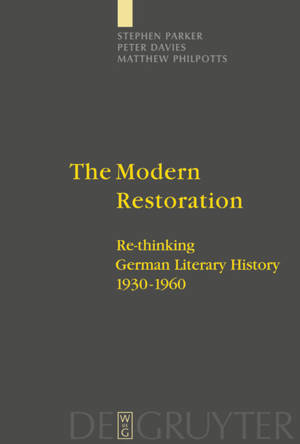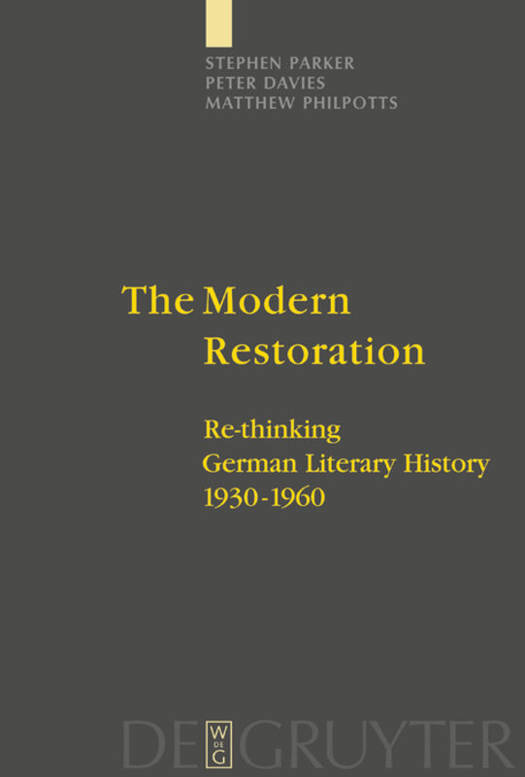
- Retrait gratuit dans votre magasin Club
- 7.000.000 titres dans notre catalogue
- Payer en toute sécurité
- Toujours un magasin près de chez vous
- Retrait gratuit dans votre magasin Club
- 7.000.0000 titres dans notre catalogue
- Payer en toute sécurité
- Toujours un magasin près de chez vous
The Modern Restoration
Re-Thinking German Literary History 1930-1960
Stephen Parker, Peter Davies, Matthew PhilpottsDescription
This book seeks to move twentieth-century German literary history away from its stubbornly persistent reliance on the political turning-points of 1933 and 1945. In the first part of the book, the authors analyze a synchronic corpus of literary journals, identifying a restorative aesthetic mood in the years 1930-1960 which persists across political date boundaries. In the second part, the careers of five writers are considered diachronically against this prevailing restorative climate: Gottfried Benn, Johannes R. Becher, Bertolt Brecht, Günter Eich, and Peter Huchel. Combining these two approaches, the authors show that a fresh perspective that challenges established literary-historical periodisations can shed light on the common cultural and aesthetic ground shared by writers, editors and critics across the ideological divides of the era.
Spécifications
Parties prenantes
- Auteur(s) :
- Editeur:
Contenu
- Nombre de pages :
- 403
- Langue:
- Anglais
Caractéristiques
- EAN:
- 9783110181135
- Date de parution :
- 26-07-04
- Format:
- Livre relié
- Format numérique:
- Genaaid
- Dimensions :
- 156 mm x 234 mm
- Poids :
- 743 g

Les avis
Nous publions uniquement les avis qui respectent les conditions requises. Consultez nos conditions pour les avis.






